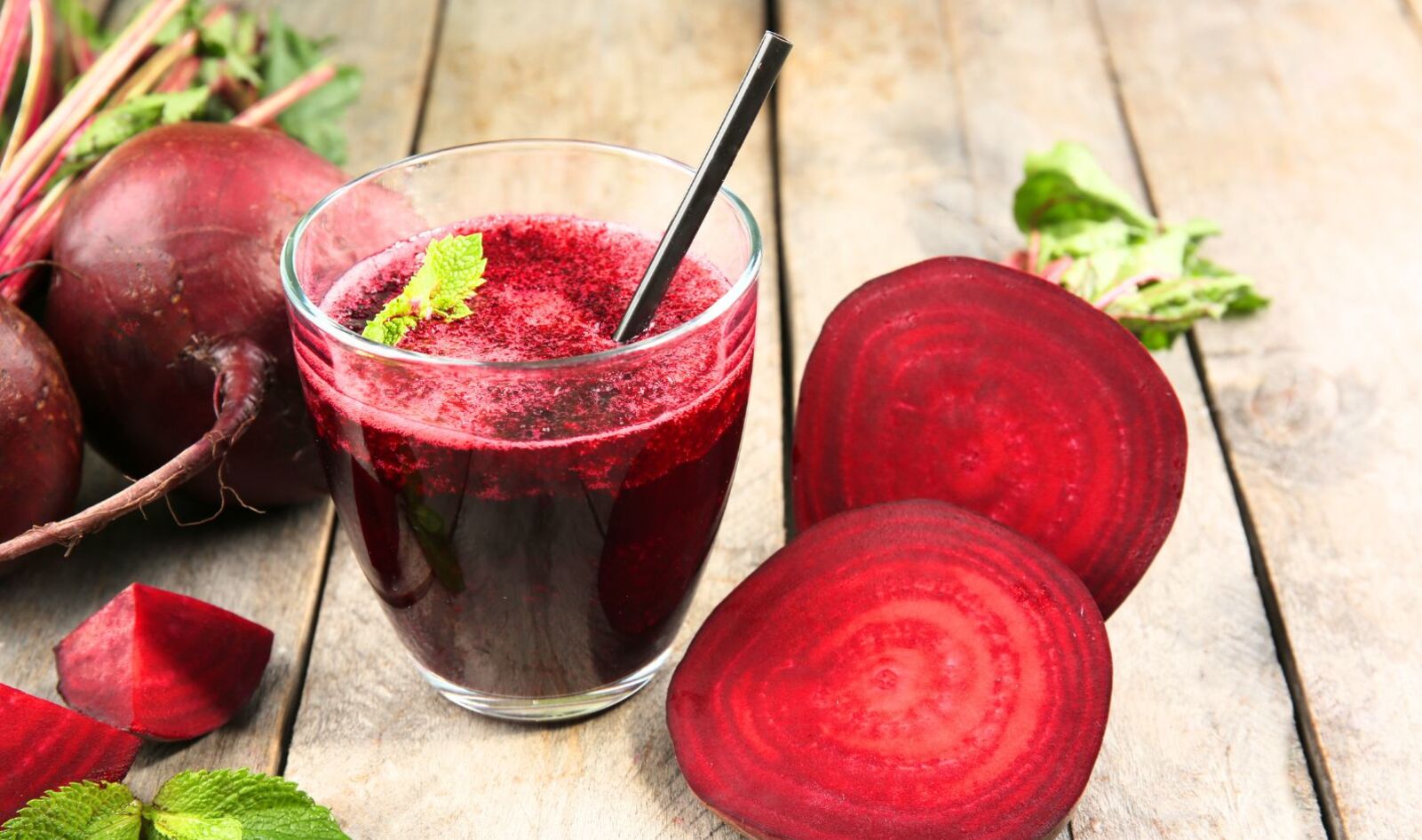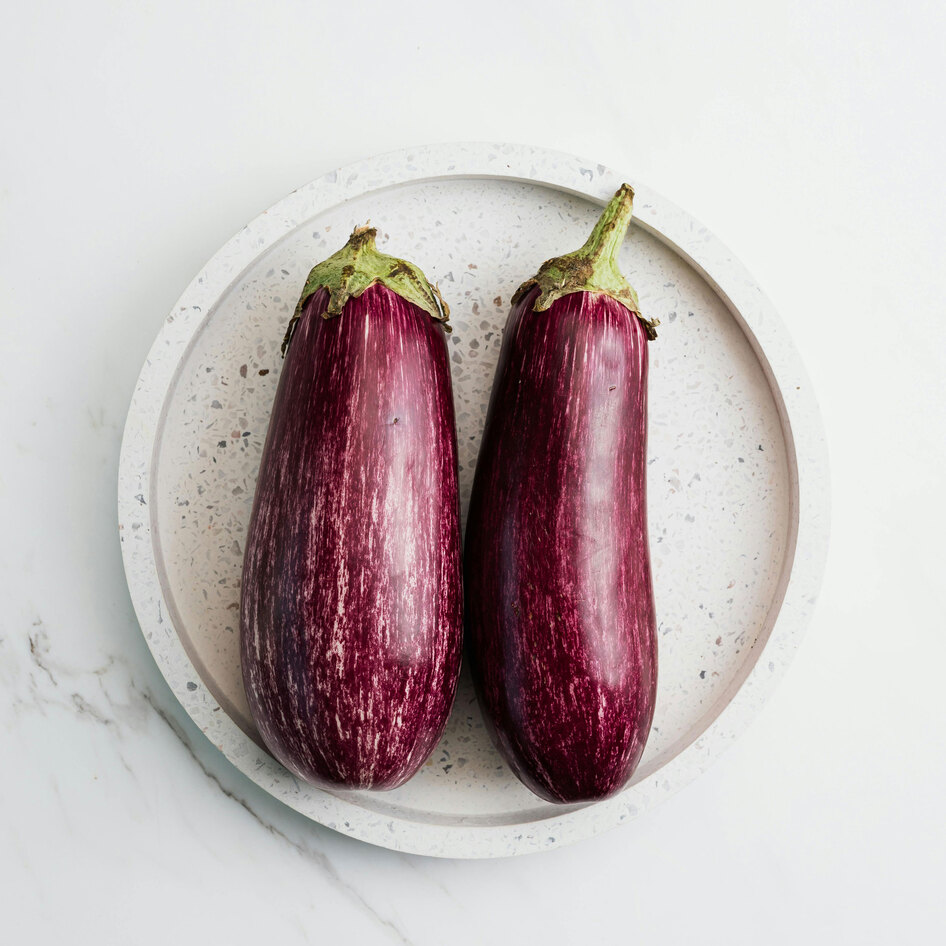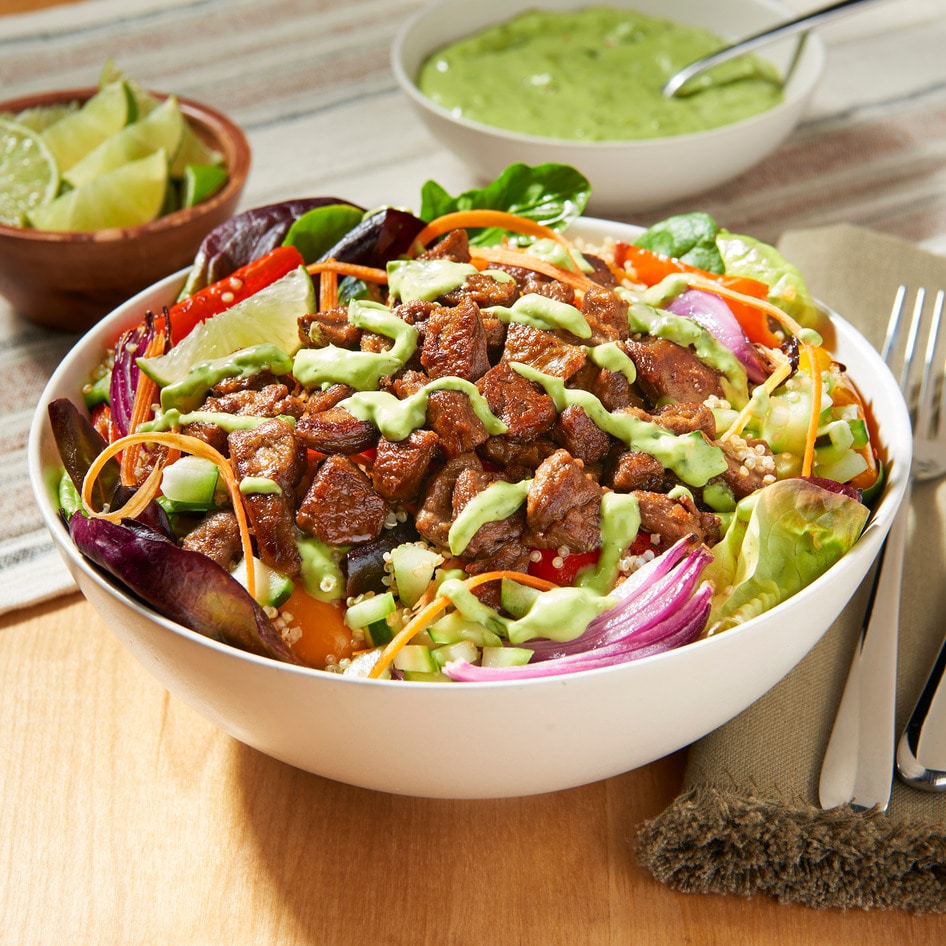What do former Olympic marathoner Ryan Hall, running coach Joe Holder, triathlete Lauren Goss, and CrossFit Games champion Tia-Clair Toomey-Orr all have in common? They’re elite athletes, yes—but they’re also big believers in the power of beets.
“[Beetroot shots] are just so beneficial,” Toomey-Orr told Women’s Health earlier this year. “You don’t realize the importance of what beetroot can actually do for your body, your recovery, just everything when it comes to high-stress, high-pressure environments and when you’re demanding so much from your body.”
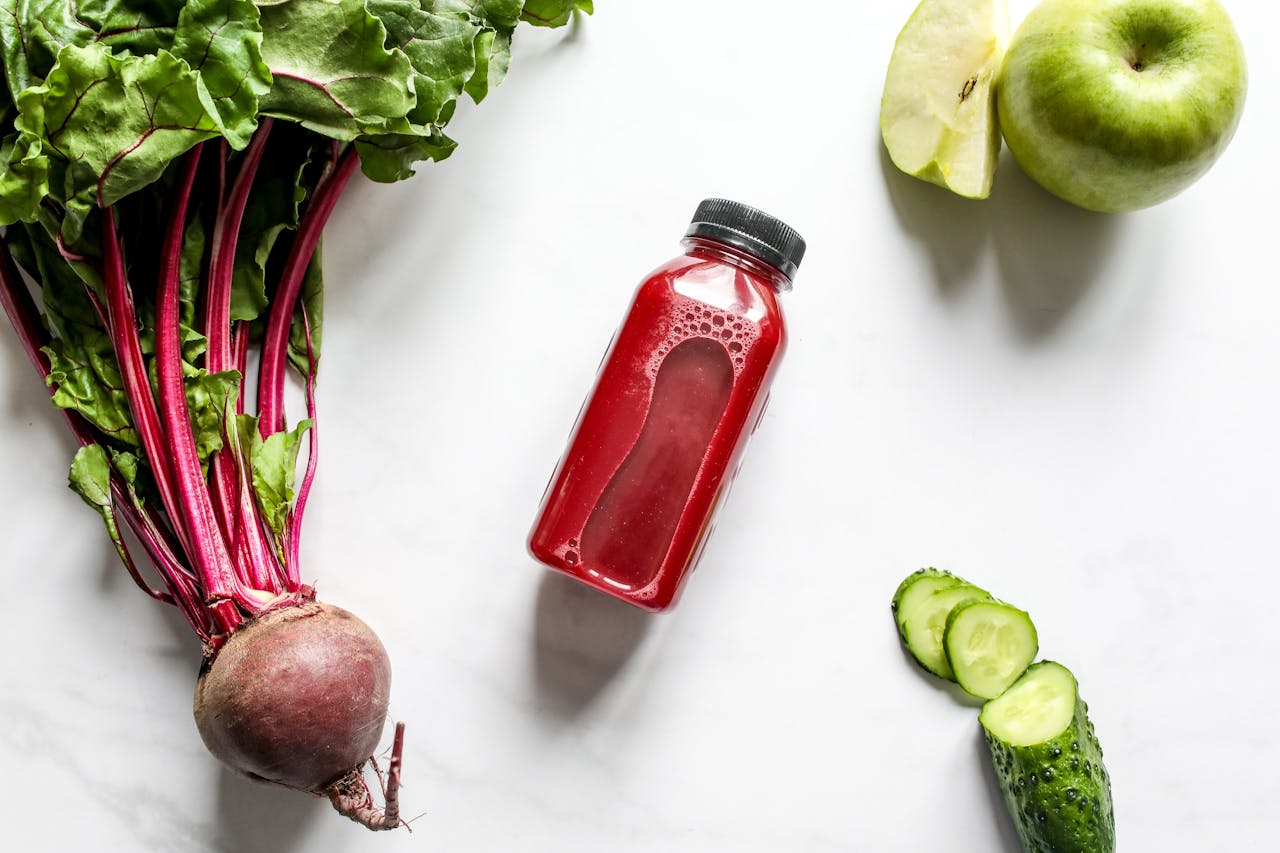 Pexels
Pexels
But Toomey-Orr isn’t the only one betting on beets. Back in 2016, Goss told The Columbian that beet juice boosts her endurance when she drinks it consistently in the days before a triathlon. Holder credited beets with helping him qualify for the Boston Marathon. And Hall? He’s long been open about using beet juice to shave time off his races and improve overall performance.
So what is it about beets that has so many top-tier athletes swearing by them? Let’s take a look.
Why athletes drink beet juice
Beets are packed with nutrients. They’re a good source of folate, manganese, and copper, as well as betalains—a group of pigments known for their antioxidant and anti-inflammatory properties. But it’s the naturally occurring nitrates in beets that are especially beneficial for athletic performance.
Nitrates are also found in other vegetables, like spinach, arugula, and celery. Once consumed, these nitrates are converted by bacteria in the mouth into nitrites, and then into nitric oxide in the body, particularly under low-oxygen conditions, such as during intense exercise.
Nitric oxide promotes vasodilation (the widening of blood vessels), which increases blood flow and enhances oxygen delivery to the muscles. This not only improves muscle efficiency but also helps boost endurance and performance.
“Nitric oxide relaxes and expands your blood vessels, which allows for increased blood flow and more oxygen delivered throughout your body,” Carly Sedlacek, RDN, LD, told the Cleveland Clinic. “In athletic terms, that can help you perform better for longer.”
For best results, experts recommend consuming beets about two to three hours before training or competition, when nitrate levels in the blood tend to peak.
The benefits of beets
Beets aren’t just for athletes. Anyone can reap their benefits. Dietary nitrates have also been linked to better brain function and even female sexual health. “It helps the blood flow to pelvic organs and improves cardiovascular and skin health,” functional nutritionist Pauline Cox told Vogue.
Nitrates are also linked to heart health. “When food sources of nitrate are consumed, the nitrate is absorbed by salivary glands, where it is converted into nitrite,” Kelly Johnson Arbor, MD, told Medical News Today. “From there, the nitrite is absorbed into the bloodstream and transformed into nitric oxide. Nitric oxide plays a key role in many functions within the human body, including blood pressure regulation and heart health.”
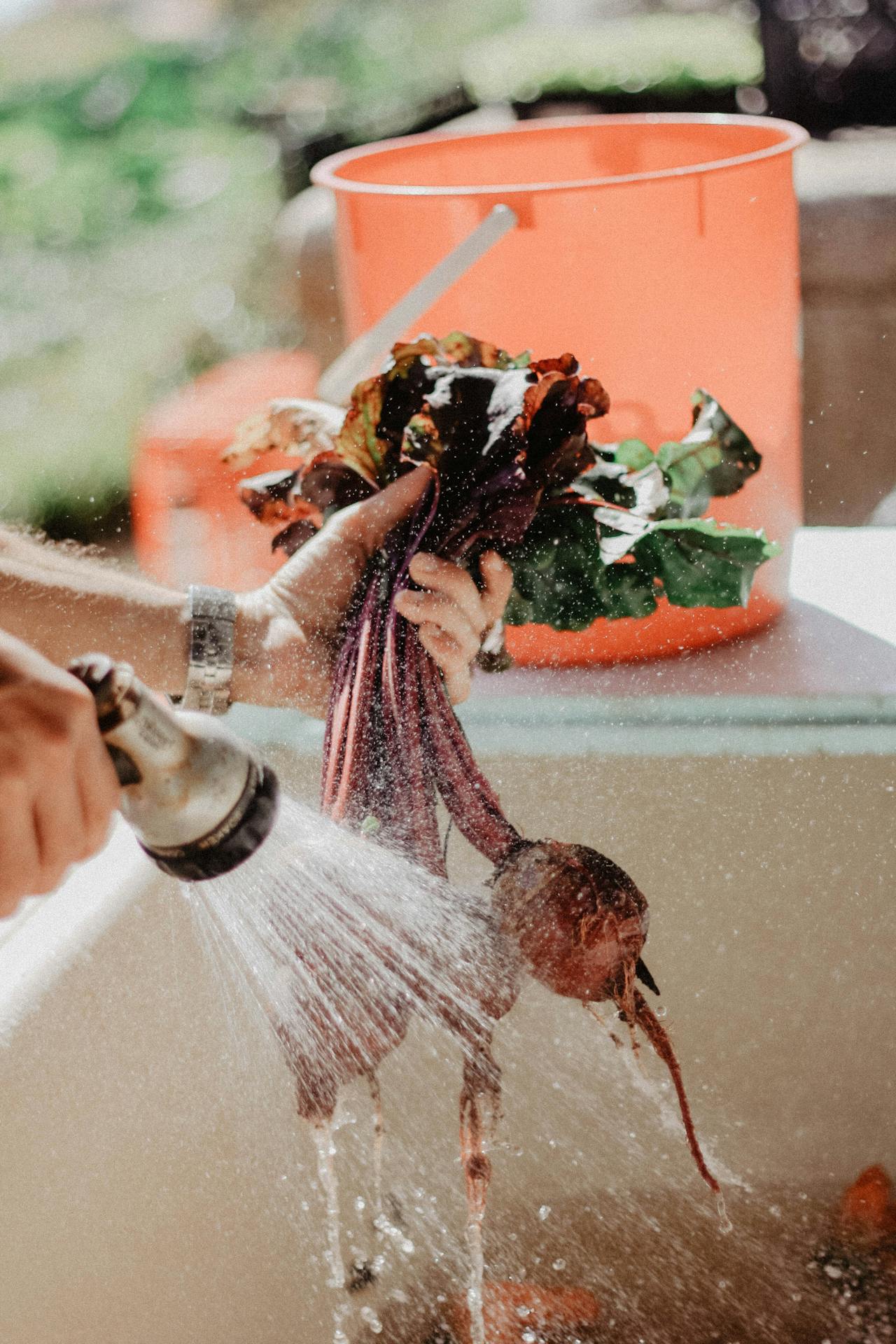 Pexels
Pexels
BECOME A VEGNEWS VIP: Get exclusive product deals, freebies, and perks galore!
On top of this, beets can also reduce inflammation in the body (thanks to those betalains) and they’re also a good source of fiber, too. Fiber is particularly important for digestive and gut health, and it also helps promote regular bowel movements.
“Fiber is the foundation of a healthy gut,” Nichole Dandrea-Russert, MS, RDN, and author of The Fiber Effect, previously told VegNews. “Inadequate fiber can lead to gut dysbiosis—an imbalance of bacteria—which can cause short- and long-term inflammation.”
Curious about beets? Discover more about their range of health benefits here—and learn how to enjoy them beyond beet juice, from juicy burgers to creamy smoothie bowls.
For more plant-based stories like this, read:
JUMP TO ... Latest News | Recipes | Guides | Health | Subscribe

